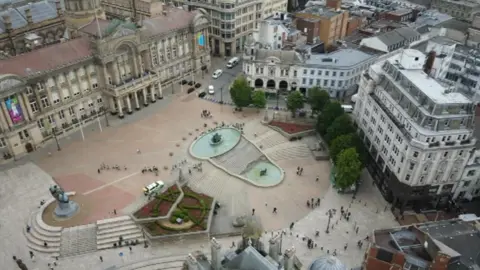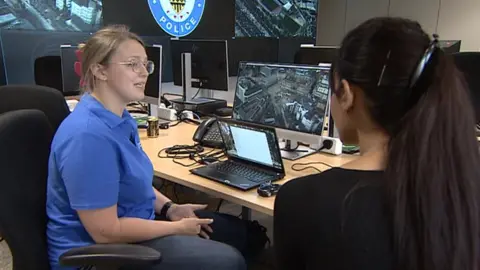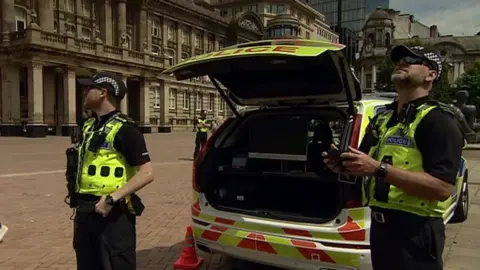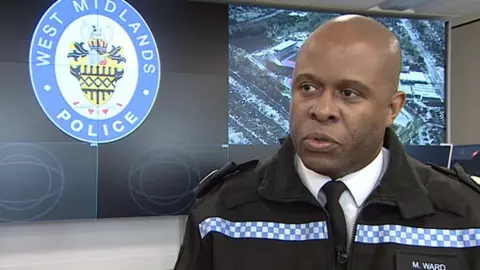Map technology for police Commonwealth Games operation
 BBC
BBCPolice are using mapping technology to help keep spectators safe during the Commonwealth Games using 3D maps produced by Ordnance Survey.
More half a million people are expected in Birmingham during the Games and an operation will require 3,000 officers from forces across the UK.
Great Britain's national mapping agency has been involved ahead of the event between 28 July and 8 August.
Images of sites had been gathered, Ordnance Survey stated.
Technical relationship consultant Rachel Cookson said: "We've got a combination of aerial imagery, which we've flown over each site, and then our team back at HQ, they've created a 3D mesh model from this imagery."
West Midlands Police Assistant Chief Constable Matt Ward said it "actually gives us... a really good situational awareness in terms what... venues are, the entrances, the exits, where crowds may be gathering".
The lead officer for the force's policing operation for the Games added: "So as we [are] deploying and moving officers and colleagues from across the emergency services, we can do so with absolute confidence."

Police drones will play a part in an operation to keep Birmingham safe, but earlier this month some newspapers claimed Russia could use drones to target the Games in retaliation for British support of Ukraine.
Mr Ward said: "I don't recognise any of those stories at all. We're working with partners. We're working with the intelligence community. We have contingencies in place."
One hundred employees have been planning since 2017 and more than 50 police dogs were being deployed.

One tactic is Project Servator, which involves units of highly visible officers being deployed in short bursts in city centres.
Sgt Richard Evans, from the force, said it was "nothing to be concerned about".
He added: "We're using specially trained officers to try and look for levels of criminality.
"We're also looking to use the members of the public who are there as our extra eyes and ears and we would urge them to report anything that they see suspicious."


Follow BBC West Midlands on Facebook, Twitter and Instagram. Send your story ideas to: [email protected]
